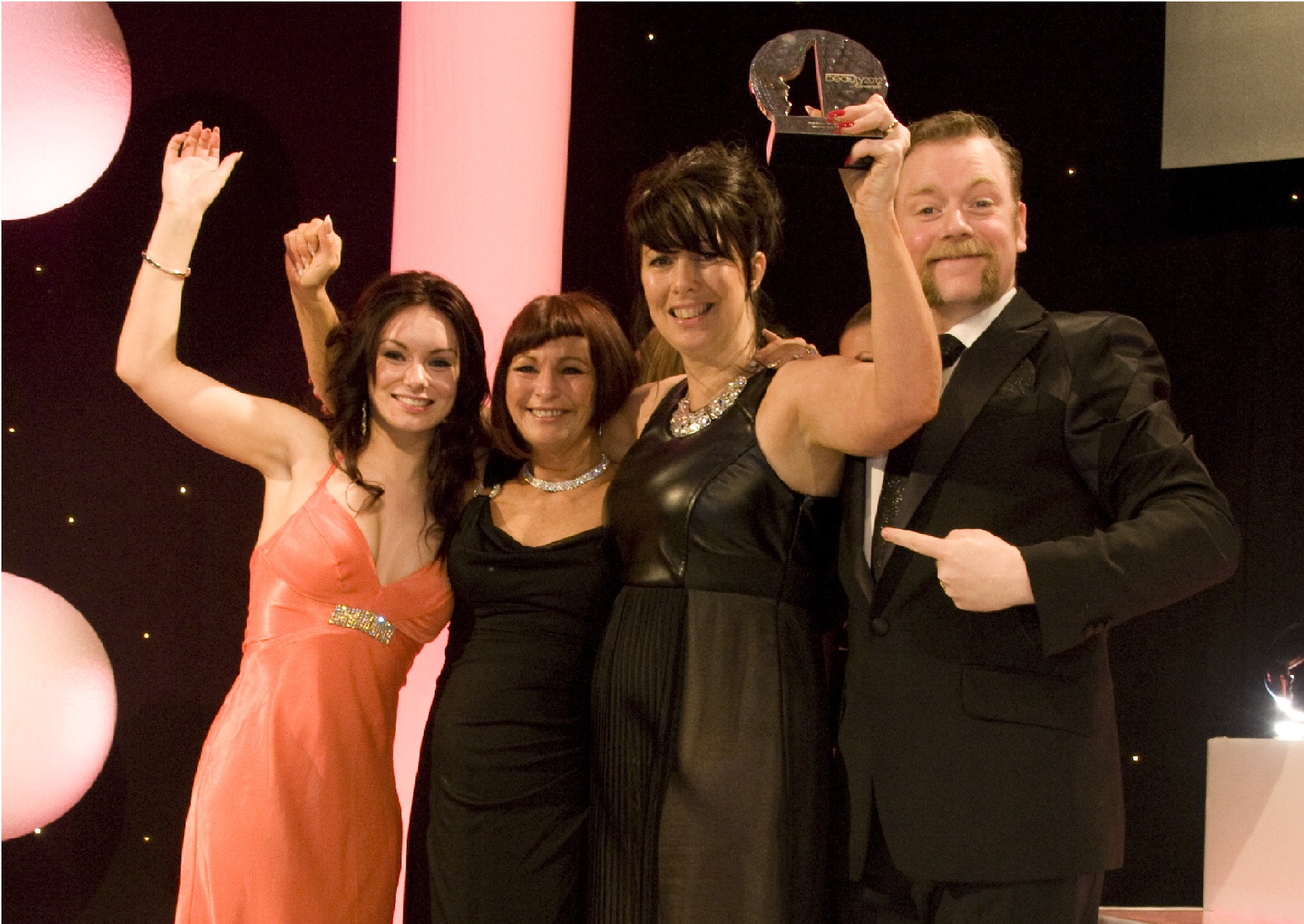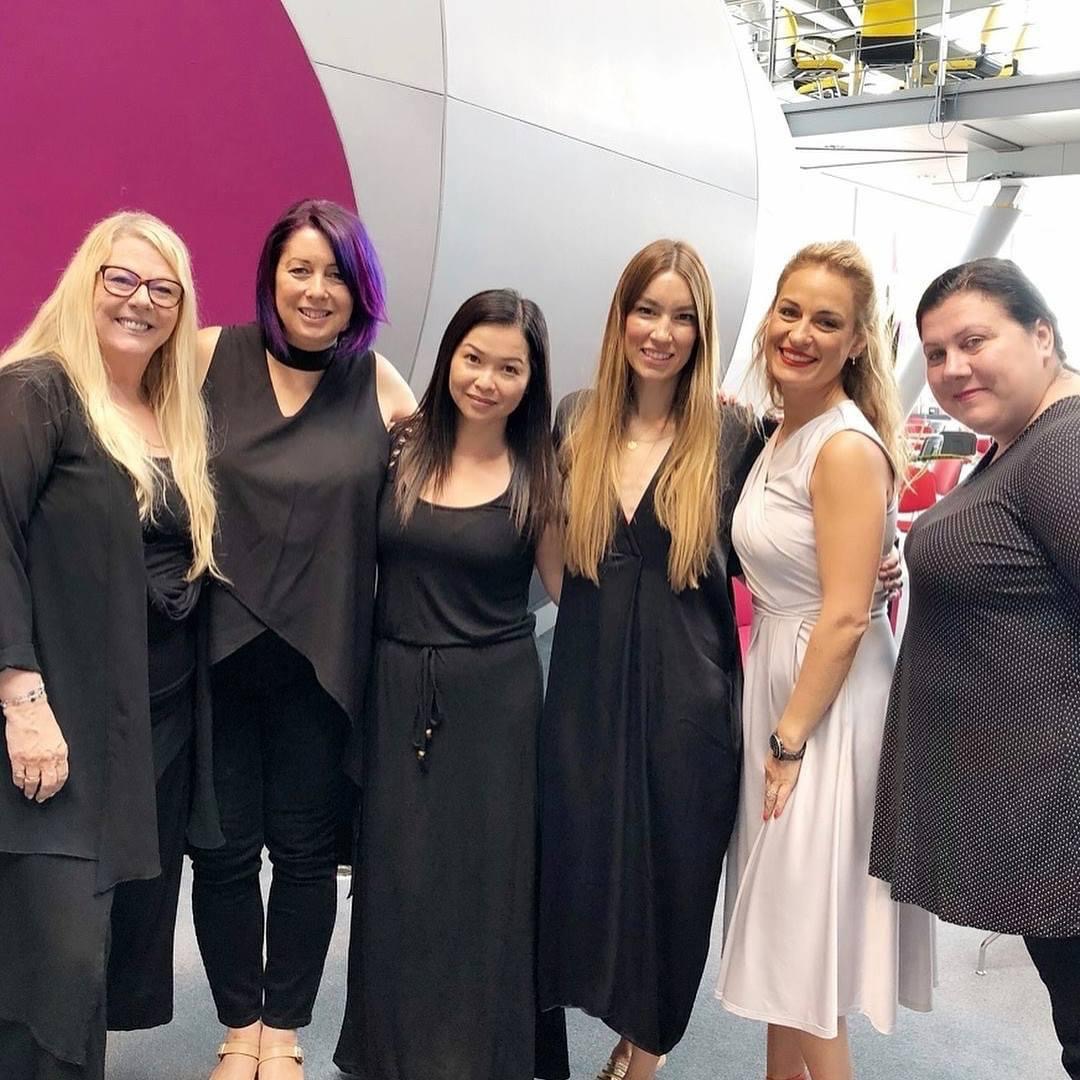PB Upskills: Liza Smith on coaching and mentoring beauty pros during Covid-19

As salons in England prepare to emerge from a third lockdown, Liza Smith, session tech and owner of Bodylines salon in Kent – and a speaker at the upcoming Professional Beauty World event on February 28–March 2 – is gearing up to launch a business coaching and mentoring programme, based on the support and resources she has been offering to fellow salon owners over recent months.
Having run a successful salon since 1987, Smith is a well-known name to many, with a career that also includes session work at fashion weeks and with celebrities including Rita Ora and Miley Cyrus, an educator role for supplier Sweet Squared and multiple Professional Beauty Awards.
During the initial lockdown back in spring, however, she gained a following among newer salon owners and techs when she began supporting them digitally, initially via the Facebook groups she’s involved with and later by producing a return to work guide that was requested by more than 1,000 owners.
She was also part of a team that launched the Salon Standards Alliance, which raised funds to produce videos that demonstrate a safe client journey.
As an experienced salon owner and close ally of industry aficionado Marian Newman, Smith was also one of a small group of industry professionals that were instrumental in advising Government on the reopening guidelines.
Expert opinion
“In the early days of the first coronavirus lockdown, I was talking to Marian a lot while she was creating the practical guidelines for the nail industry. She was working with the British Beauty Council when they were contacted by BEIS [the Government’s Department for Business, Energy & Industrial Strategy] to get a task force together for close contact services,” she explains. “Marian put me forward because they had all the industry bodies, like Babtac and the NHBF, involved and needed some salon owners to make sure they were effective, and practical to implement in salon.”
At that time, the bones of the guidelines were drawn up and Smith and others were invited to put forward suggestions. “I asked for specifications for home salons and mobile therapists because there wasn’t much guidance for people outside of the salon environment,” says Smith. “I also brought up the issue of screens because everyone was talking about them but [scientist] Doug Schoon said they would be a false sense of security, as the virus can travel on dust. In the early days, the Government were not really taking that on board.”
When the guidelines were later finalised and released, there was a lot of criticism on the amount of PPE required for salons, in comparison to other industries, and Smith agrees that certain aspects felt unfair. “We do have to wear an exorbitant amount of PPE but the main thing that differentiates our industry from, say, hospitality, is the very close proximity, because you are often face-to-face within a metre distance,” she says. “A lot of people had trouble with visors so the Government did listen to feedback and gave the alternative of safety goggles/glasses.” For those still struggling with visors, Smith strongly recommends experimenting with safety glasses. “Visors sit two to three inches away from your eyes so they naturally focus on the visor instead of the person the other side,” she says, whereas safety googles sit closer to your eyes so you look through them like glasses and can even get them made to a prescription.
Three client types
Another aspect that Smith has been advising other salon owners on in the latter part of last year is marketing and client retention. In the months following the big July reopening, many salons found their diaries a lot quieter than they expected. “The two things clients were knocking down salon doors for were waxing and hair, but everything else in the middle has been slow to build back up,” says Smith, “I did a survey among clients, and another with other salon owners, and I found that you can split clients into three groups, in terms of the reasons they may not be coming in.”
The first group is scared, and Smith says they are in the minority but some clients, either through health reasons or anxiety, are not coming back to salons. The second group has had a change to their financial situation, or are concerned about a change in the future, so they are saving.
The third, and largest group, just don’t have a reason to return to salon, says Smith. “They’ve had no special events or holidays to prepare for and have just got used to skipping their treatments,” she adds.
Smith advises salon owners to identify and target all three groups. “You can’t do a lot about the financially concerned clients right now, you just have to accept that they will return when they feel comfortable to spend again because you can’t discount everything to get that group back in.”
She adds: “Some of the scared ones won’t come back now but, if you haven’t already, you must start interspersing the messaging on your social media with posts to show how safe you are.” She suggests videos to show your welcoming procedure or demo aspects of safety such as single-use files, or even show the whole salon team in their PPE.
“But the biggest group, and so the biggest message you need to put out, is a reason to return,” adds Smith. “If they’re not going on holidays or going out at the weekend, they’re not doing anything that would make them say to you, ‘I know I normally only come for my manicure but I need my waxing, my lashes and brows done’, so we’ve changed the messaging for this group to a message of self-care, which has worked well.”
Just as some clients may be slow to return, some therapists also find it difficult to adjust to the “new normal”, and with greater pressure on salon owners to claw back some of the revenue lost during the lockdowns, Smith says it’s vital to involve the team in your new vision.
“If I look at my business back in March, I’d got myself to such a comfortable place that I’d taken my foot off the pedal and that was fine, it wasn’t doing any harm, but now I almost feel like I’ve started a new business this year in that I’m constantly looking at ways to make sure everybody is happy and knows what’s expected of them,” says Smith. “I think communication has never been more important.”

Empowering therapists
Smith also advises making team members more accountable for the success of the business. “After staff have had a long time off, some can be a bit slow to return to their normal mojo,” she says. When Bodylines first reopened in the summer, Smith created forms and asked her team to fill in each client’s name and treatment then answer questions about the appointment.
“It asks, were they a first-time client? Did they come in on an offer? Did you upsell? Did they rebook?,” she says. “It makes them accountable, and not in a bad way, but if for the first two or three days there are no rebooks or upsells then it gives them the opportunity to notice that and think, ‘OK, next time I’m actually going to push for the rebook, I’m going to talk more about the products that back up their treatments’, so it’s building their self-esteem back up again, which I think is important for all of us this year.”



